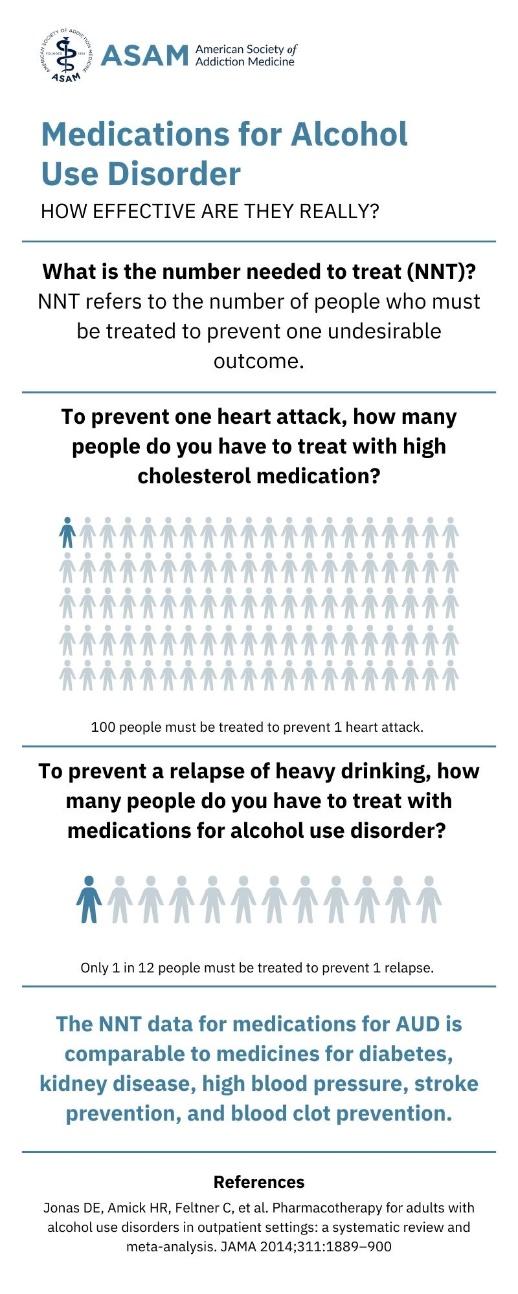Blog
Three Reasons to Treat Alcohol Use Disorder
By Stephen Holt, MD, MS, FASAM
Treating alcohol use disorder (AUD) is important because it is a chronic condition that can have serious physical, psychological, and social consequences. AUD is characterized by a pattern of alcohol consumption that leads to significant impairment or distress. If left untreated, it can worsen over time and lead to numerous health problems, including liver disease, cardiovascular issues, mental health disorders, and relationship difficulties.
- Prevalence
Addiction is highly prevalent. In whatever medical setting you treat patients, you will see patients with substance use disorder (SUD). Regardless of why your patients are seeing you, many of them will have challenges related to substance use. To improve their health and well-being, you as their physician must recognize, embrace, and treat all your patients’ diagnoses.
At least 10 percent of all people who see a primary care physician have SUD. (J Gen Intern Med. 2015 Dec; 30(12):1757-64). That percentage includes only patients with SUD and does not include patients who are drinking too much. People who exhibit unhealthy drinking make up at least 20 percent of the US population, and 10 percent exhibit the DSM5’s criteria for diagnosis of an alcohol use disorder (AUD). Many millions of people who see primary care physicians potentially need screening and treatment for alcohol use. - AUD is destructive.
AUD is among the top 10 causes of death and disease in the world. Among those ages 15 to 49, it's the number one cause of death and disability in the world. That’s a staggering statistic. We owe it to ourselves, our patients, humanity, and the public at large, to not ignore AUD. We must embrace existing, evidence-based treatments and help close the devastating treatment gap.
While much attention in the addiction medicine community has focused on opioid use, the morbidity and mortality associated with alcohol dramatically outstrip that for opioids, cocaine, and every other illicit drug (Centers for Disease Control and Prevention. Alcohol-Related Disease Impact (ARDI) application, 2022). Proportionally, the number of deaths attributable to alcohol dwarfs the deaths from opioids. The contribution of alcohol use towards increased cancer mortality, liver disease, heart disease, risk of strokes, dementia, osteoporosis, etc., occurs in a subtle, indolent way. - Efficacy of Medications
The landscape of treatment pharmacotherapies for AUD is comparable to the landscape of treatment for many chronic medical diseases. Medications for AUD are under-prescribed because of a lack of patient awareness and training for providers to prescribe them. Many patients do not know to ask for them, and clinicians are not trained to treat SUD because there is still an antiquated mindset that addiction can be resolved with more “willpower” from the patient.
Download: ASAM’s Alcohol Use Disorder Resource Guide
Learn more about treating Alcohol Use Disorder.
Learn more about ASAM's Alcohol Withdrawal Management Guide.
Stephen Holt, MD, MS, FASAM, is an Associate Professor of Medicine at Yale School of Medicine in the Section of General Internal Medicine, Associate Program Director for Yale's Primary Care Internal Medicine Residency, and Director of Yale's Addiction Recovery Clinic. He is Board Certified in Addiction Medicine and Internal Medicine.
